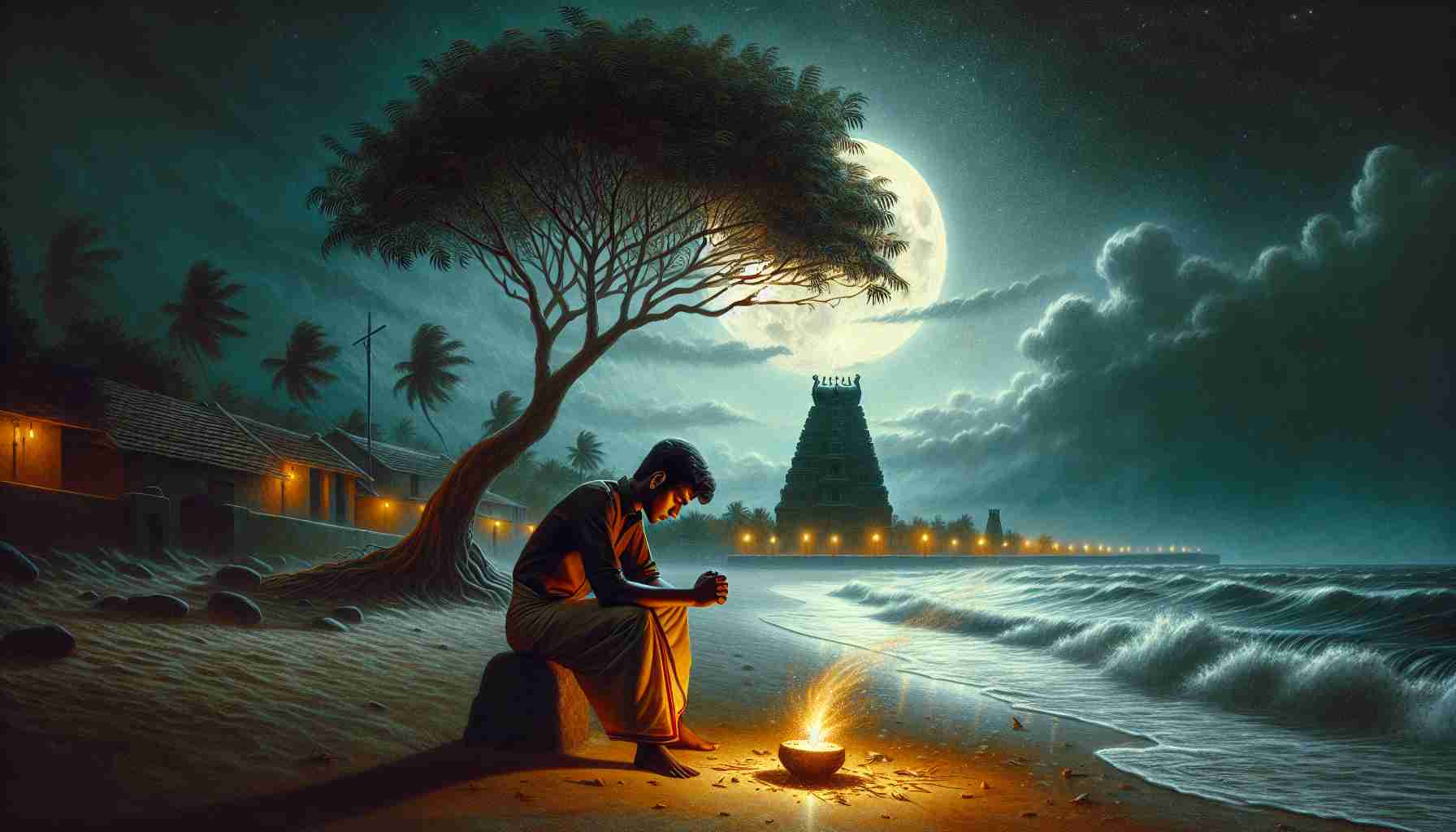

I am Varun, a potter’s son from a dusty village near Rameswaram. For much of my growing years, my hands shaped clay better than my heart shaped peace. I had my father's skill, but not his calm spirit. Anger came easily to me—hot, rising, and wild.
It was worst with my younger brother, Gopi. He would knock over my pots by mistake, mix my glazes, or talk when I needed silence. He was kind by nature, soft-spoken and eager to please, but something about his lightness bothered me. I snapped at him more times than I can count. My parents, kind souls devoted to Lord Rama, would sigh but never scold. “Varun, the fire in you must choose if it will burn or light the way,” my mother once said.
But I didn’t listen.
Then one day, Gopi sold three of my pots to a visiting pilgrim without asking. They were half-finished. When I returned from the river and saw the customers gone and my incomplete work paid for, I lost it. I threw a pot so hard it shattered against the neem tree behind our hut. Gopi flinched but said nothing.
That night, I sat alone by the shore. The sea hushed the world with its endless song. In the quiet, a shloka from the Bhagavad Gita rose in my mind like a long-forgotten lullaby: “Krodhat bhavati sammohah”—From anger comes delusion (Chapter 2, Verse 63). My grandfather taught it to me when I was small and broke my first pot in fury.
I looked at my fists, still trembling. What was I doing?
A little boy came by as I sat there, maybe six or seven. He carried a cracked diya—an oil lamp—cupped gently in his palms. I watched as he lit it anyway and placed it on a flat rock by the water. Its glow caught the breeze but didn’t go out.
“Your diya is broken,” I said, unsure why I spoke.
“Yes,” he smiled. “But the light still works.”
Something snapped loose in me. All my anger—toward Gopi, toward myself—suddenly felt like that cracked lamp. Useless, unless I chose to offer it. Not to the world. To the Divine.
I stood and whispered words I hadn’t said in a long time: “Oh Rama, Lord of compassion... take this fire in me. Make it light.”
From that day onward, when anger rose, I paused. I breathed like the yogis in the Upanishads say to—long and steady, connecting breath to God. I repeated verses from the Ramayana where even Lord Hanuman, mighty and full of fire, bows before service and love.
I didn’t stop being fiery. But slowly, very slowly, the fire began to warm instead of burn.
And Gopi? He still talks too much. But now, sometimes, I laugh.
Because even broken lamps can carry light.
I am Varun, a potter’s son from a dusty village near Rameswaram. For much of my growing years, my hands shaped clay better than my heart shaped peace. I had my father's skill, but not his calm spirit. Anger came easily to me—hot, rising, and wild.
It was worst with my younger brother, Gopi. He would knock over my pots by mistake, mix my glazes, or talk when I needed silence. He was kind by nature, soft-spoken and eager to please, but something about his lightness bothered me. I snapped at him more times than I can count. My parents, kind souls devoted to Lord Rama, would sigh but never scold. “Varun, the fire in you must choose if it will burn or light the way,” my mother once said.
But I didn’t listen.
Then one day, Gopi sold three of my pots to a visiting pilgrim without asking. They were half-finished. When I returned from the river and saw the customers gone and my incomplete work paid for, I lost it. I threw a pot so hard it shattered against the neem tree behind our hut. Gopi flinched but said nothing.
That night, I sat alone by the shore. The sea hushed the world with its endless song. In the quiet, a shloka from the Bhagavad Gita rose in my mind like a long-forgotten lullaby: “Krodhat bhavati sammohah”—From anger comes delusion (Chapter 2, Verse 63). My grandfather taught it to me when I was small and broke my first pot in fury.
I looked at my fists, still trembling. What was I doing?
A little boy came by as I sat there, maybe six or seven. He carried a cracked diya—an oil lamp—cupped gently in his palms. I watched as he lit it anyway and placed it on a flat rock by the water. Its glow caught the breeze but didn’t go out.
“Your diya is broken,” I said, unsure why I spoke.
“Yes,” he smiled. “But the light still works.”
Something snapped loose in me. All my anger—toward Gopi, toward myself—suddenly felt like that cracked lamp. Useless, unless I chose to offer it. Not to the world. To the Divine.
I stood and whispered words I hadn’t said in a long time: “Oh Rama, Lord of compassion... take this fire in me. Make it light.”
From that day onward, when anger rose, I paused. I breathed like the yogis in the Upanishads say to—long and steady, connecting breath to God. I repeated verses from the Ramayana where even Lord Hanuman, mighty and full of fire, bows before service and love.
I didn’t stop being fiery. But slowly, very slowly, the fire began to warm instead of burn.
And Gopi? He still talks too much. But now, sometimes, I laugh.
Because even broken lamps can carry light.